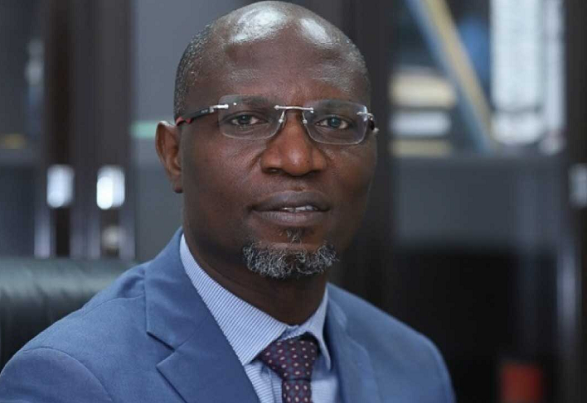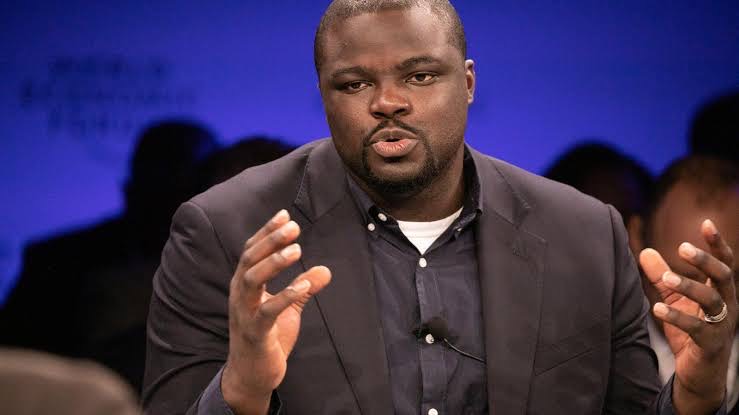In a virtual meeting with virtual assets service providers (VASPs) who have applied for the Accelerated Regulatory Incubation Program (ARIP) and Regulatory Incubation (RI) programs of the Securities and Exchange Commission (SEC Nigeria), Dr. Timi Agama, the Director-General, engaged the participants about the ongoing licensing processes. Held Monday 23 December 2024, the meeting had the Director-General addressing what he described as some misconceptions in the public over how some of the applications received by SEC Nigeria may not be treated. Dr. Agama emphasized that although not all applicants would be licensed, all applications would be treated eventually.
At the meeting, Dr. Agama emphasized the importance of consultation, transparency, and integrity in the regulatory process, acknowledging concerns about communication and the need for stakeholder input in the rule-making process. He highlighted the demographic context of over 200 million people, with a significant youth population, and discussed a new investments and securities law, awaiting presidential assent aimed at fostering economic development.
The meeting concluded with a commitment on SEC Nigeria’s part to engage stakeholders, ensure a fair regulatory framework, and enhance compliance with national security standards, all while building a robust financial ecosystem in Nigeria.
Highlights
- Introduction and Purpose of the Meeting
Dr. Timi Agama emphasized the importance of the meeting and its purpose to inform stakeholders about the ARIP and RI programs, as well as to clarify misconceptions. The meeting aims to provide clarity in the FinTech space, which has faced uncertainty.
- Consultation and Communication Importance
Dr. Agama expressed concern about the potential for rumors to spread if clear communication is not maintained among stakeholders, indicating the importance of transparency in the regulatory process.
Dr. Agama acknowledged the anxiety surrounding the regulatory process and the desire for regulation, indicating a need to address these concerns carefully. He mentions that the regulatory space is new and requires continuous processes such as monitoring, surveillance, and education, which are essential for effective regulation.
Dr Agama emphasized SEC Nigeria’s decision to maintain a level playing field for all institutions involved in the regulatory process is highlighted, ensuring that no institution is treated differently.
- Rule-making Process
Dr. Agama expressed concern about the fairness of claiming that regulators know everything, indicating the need for stakeholder input. It is decided that valid points raised by stakeholders will lead to amendments in the regulations.
Dr. Agama mentioned that the population is over 200 million, with over 70% being below 30 years old, highlighting the demographic context for the regulations.
- Building an Ecosystem
Dr. Agama encouraged participants to engage and collaborate to ensure the success of the ecosystem.
that the population is over 200 million, with over 70% being below 30 years old, highlighting the demographic context for the regulations.
- New Law and Economic Development
A new law, Investments and Securities Act 2024 has been passed by the National Assembly and is awaiting presidential assent, which is crucial for regulating the space, points out Dr. Agama.
- Engagement with Diaspora and Stakeholders
Dr. Agama expressed concern about the challenges of communicating regularly with stakeholders due to competing demands, emphasizing the need for careful and methodical engagement. He mentioned that the process of reviewing applications is laborious and that the SEC is committed to meeting international best practices, aligning with regulations from international bodies like IOSCO.
Dr. Agama emphasizes the importance of professionalism and engagement in the SEC’s approach, indicating a commitment to transparency and cooperation with stakeholders.
- Regulatory Changes and National Security
Dr. Agama acknowledged the anxieties of participants regarding the new regulations and the need for cooperation to address national growth. He emphasizes the need for cooperation and engagement with stakeholders to address the challenges faced and to share solutions and the commitment to work together towards creating a better and more transparent ecosystem that aligns with national aspirations.
Read also: South Africa’s FSCA approves 248 crypto operators.
Next Steps
The next steps involve demanding information from institutions as part of the regulatory incubation program, which will help in understanding the risks posed to investors and the institutions themselves. Dr. Agama encouraged participants to engage and collaborate to ensure the success of the ecosystem.
The SEC plans to engage with various stakeholders, including the NFIU and Central Bank of Nigeria, to ensure that their regulations are accepted and effective in creating a seamless operational environment. Lastly, Dr. Agama emphasized the need for cooperation and engagement with stakeholders to address the challenges faced and to share solutions.
The about-30-minutes meeting, originally scheduled for 2 hours, ended immediately after the Director-General’s address.
Surprisingly, there was no room for questions or comments by the participants. Rather, participants were encouraged to submit any questions or comments through the provided email address of the SEC. Also, participants were encouraged to submit their feedback to the SEC regarding its most recent proposed amendments to the Rules on Digital Assets in Nigeria.
Read also: Nigeria’s Investment and Securities Bill classifies virtual assets as securities.
Commentary
- It is commendable to have the Director-General of SEC Nigeria take out time to engage stakeholders in the virtual assets sector. Particularly considering where Nigerian regulators are coming from, SEC Nigeria’s engagement with operators is significant. Similarly, Dr. Agama also had a townhall meeting with all VASPs in the Nigerian market immediately after his appointment as Director-General in June 2024. This indicates that the SEC Nigeria boss indeed has interest in seeing the nascent virtual assets sector grow and develop in Nigeria with the much-needed regulatory support.
- Although the Director General mentioned that SEC Nigeria would publish a calendar soon, this still leaves many of the ARIP and RI applicants wondering when they would eventually be contacted by SEC Nigeria following the submission of their applications, some as far back as July 2024. Also, SEC Nigeria should consider publishing information regarding the applications received so far, such as the number of applicants, the percentage of local and foreign applicants, the applications that are defective and consequently rejected, the applications that have been reviewed and those awaiting review, etc.
- While establishing adequate regulatory frameworks for a nascent industry such as the virtual assets sector can be understandably painstaking, it is essential that SEC Nigeria also considers the need to enable the market to function and operate timeously, ensuring that operators do not eventually get choked with heavy paperwork. At this time, preliminary licenses may be immediately issued to applicants who merit it, followed by supervision and monitoring. In other words, licensing needs to become more adaptive so Nigeria can become more globally competitive in this regard. This will ensure some balance between introducing regulation and enabling innovation to thrive.
For a regulatory journey that earnestly began in 2020 in Nigeria, the licensing process for VASPs particularly needs to be truly accelerated.
Read also: Nigerian SEC raises the bar for VASPs in proposed amendment
Discover more from Crypto Asset Buyer
Subscribe to get the latest posts sent to your email.





